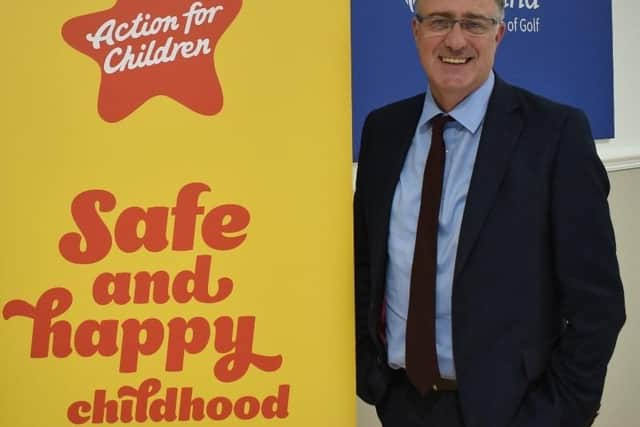Working to break down apprenticeship barriers for care experienced young people - Paul Carberry
Action for Children has a long history of working with care experienced young people to allow them the chance to find a positive destination in adulthood. One area we have identified as needing significant investment and change is with apprenticeships, and we are working to break down the barriers that are preventing these young people from attaining and finishing apprenticeships.
The difficulties care experienced young people face go far beyond the lack of traditional family support structures. That alone is a significant disadvantage but, with far higher rates of mental health issues, trauma and unstable living arrangements, this group of young people have a steep uphill battle in their efforts to fulfil their potential.
Advertisement
Hide AdAdvertisement
Hide AdOvercoming this start in life is hugely challenging in light of the disparity in educational attainment between care experienced young people and their non-care experienced counterparts. Government figures show that 73 per cent of care experienced young people leave school before the age of 16 compared to just 27 per cent of all other school leavers.


Action for Children has programmes and services throughout Scotland designed to give those from care experienced backgrounds the support they need to undertake new learning opportunities in adulthood. We are present in secondary schools across Scotland and we work to bridge the gap between school and adulthood for young people from these backgrounds.
One such project is our Stay service which works with more than 800 young people at colleges in Glasgow and Edinburgh. The service aims to ensure they can fulfil their potential while at college with comprehensive help and advice with mental wellness, financial support, housing and more both on and outside the college campuses.
For many, apprenticeships are a particularly interesting alternative to college. There have been some promising developments in this area with year-on-year increases in the uptake of apprenticeships by care experienced young people, however, Skills Development Scotland has reported a significant gap of 13.5 per cent in the completion rate between those with and without care experience.
This is unsurprising given many care experience young people moving into adulthood have to be self-sufficient and manage entire household costs, all without any wider family support networks. Bursaries help address this challenge for those with college or university places but not for apprenticeships.
To address this issue Action for Children has recently begun working with the Scottish Apprenticeship Advisory Board (SAAB) – a group of business leaders and experts who provide ‘the employer voice’ on apprenticeships. They have been investigating the access, uptake and completion rates among care experienced young people in apprenticeships. Action for Children’s National Lead for Employability, Tony Scally, is chairing a SAAB-commissioned Working Group on Care Experience young people. Already, the group, which also includes Skills Development Scotland and Barnardo’s, has identified barriers to entry and is developing initial recommendations that can bring about solutions.
Employers can make a huge difference in levelling the playing field in this area. Recruitment practices can be evolved to prevent young people from being automatically ruled out for previous offences and to recognise transferable skills over competency-based interviews or qualifications. Other aspects present in further education may also be applicable to apprenticeships such as flexibility around entry qualifications for those from deprived backgrounds and mentoring programmes to support them throughout their journey.
The responsibility does not fall to employers alone, however. The financial support akin to that for college and university in the form of bursaries requires government backing, and Action for Children has made this clear in recent meetings with key players and experts from the government including representatives from Young Person’s Guarantee (YPG) The Promise. Ultimately, this work is about improving policy in this area and making sure it is accompanied by meaningful action that will break down the barriers preventing care experienced young people from having the same opportunities as everyone else.
Paul Carberry, Action for Children Director for Scotland
For a Scottish perspective on news, sport, business, lifestyle, food and drink and more from Scotland's national newspaper, go to www.scotsman.com
To subscribe go to www.scotsman.com/subscriptions
Comments
Want to join the conversation? Please or to comment on this article.